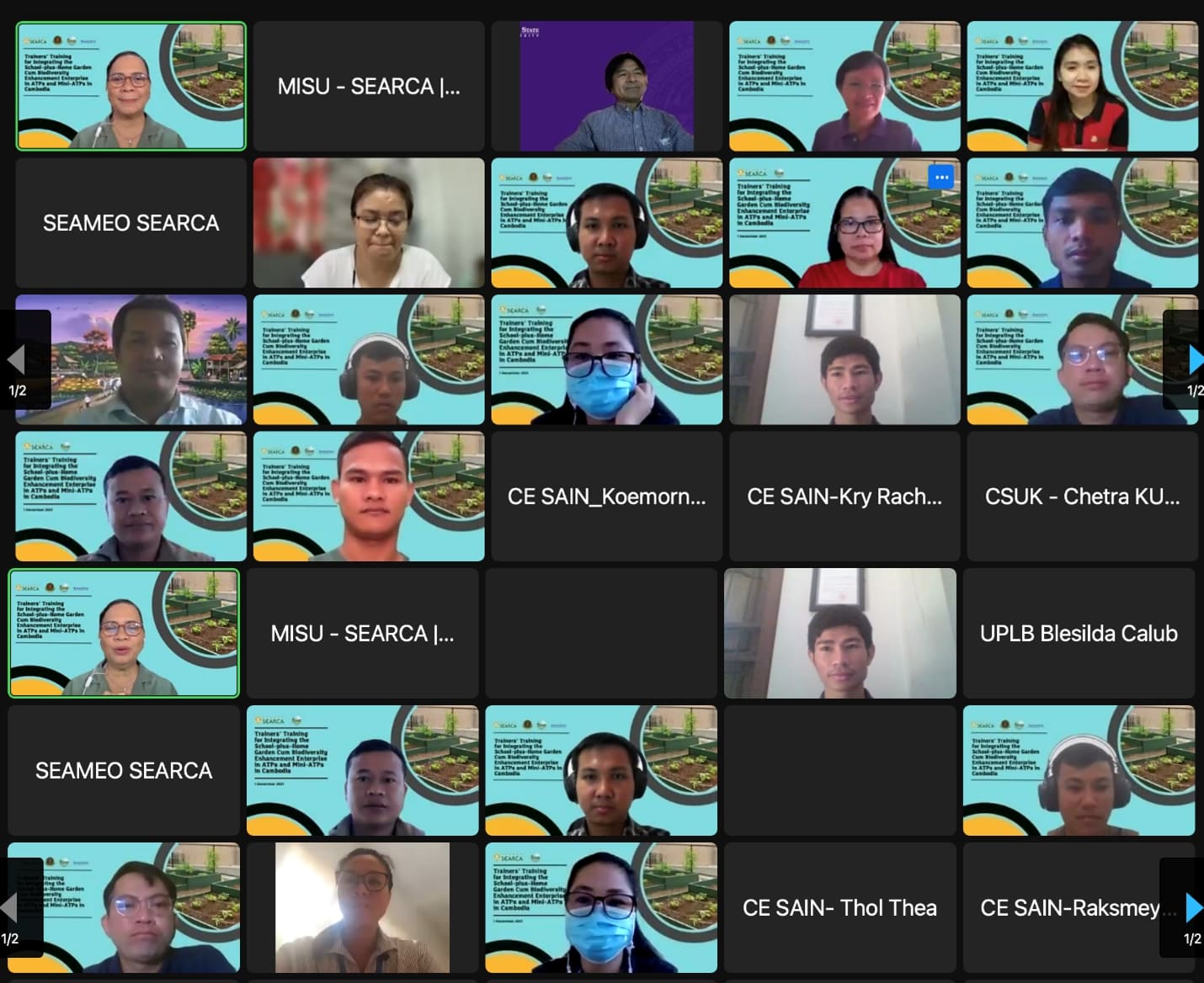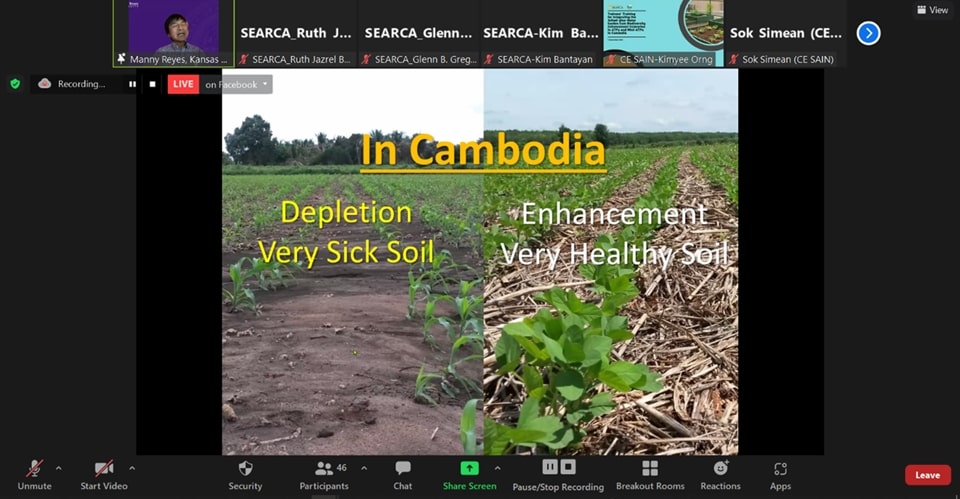As part of the ongoing scaling-up strategies to sustain and expand on the lessons learned and best practices of the School-plus-Home Gardens Project (S+HGP), the Southeast Asian Regional Center for Graduate Study and Research in Agriculture (SEARCA) and the Center of Excellence on Sustainable Agricultural Intensification and Nutrition (CE SAIN), in partnership with the Kansas State University (KSU) and the University of the Philippines Los Banos (UPLB), conducted the 4th session of the e-training titled, Trainers’ Training for Integrating the School-plus-Home Gardens cum Biodiversity Enhancement Enterprise (SHGBEE) in ATPs and Mini-ATPs in Cambodia, on 12 January 2022, via the platform Zoom.
 Participants and organizers of Session 4.
Participants and organizers of Session 4.
The session started from the recap of the previous session presented by one of the participants. This was followed by a usual pre-session self-evaluation which measured their understanding of the topic before the lecture. After the lecture, the participants worked on the templates and thereafter presented their outputs to the main session. A post-session self-evaluation was also administered during program to have a metric on the knowledge gained by the attendees.
 Dr. Reyes discussing his lecture on Natuculture.
Dr. Reyes discussing his lecture on Natuculture.
Session 4 was under Module 3 of the training program with the umbrella topic of Guiding Concepts of S+HGP. This was led by Dr. Manuel D. Reyes, Research Professor from Agroecological Engineer Sustainable Intensification Innovation Laboratory, CESAIN Cambodia. He focuses on demonstrating the topic Concept and Application of Natuculture and Climate Change-Related Management to Agriculture and Gardening. In his lecture, Dr. Reyes underscored the connection of natuculture to biodiversity enhancement and edible gardens, and how natuculture serves as landscaping for the said two concepts. Following the lecture was the workshop mechanics presented by Mr. Saren Ry, from the National University of Battambang in Cambodia.
The session ended through the discussion of the reflection and synthesis facilitated by Dr. Blesilda M. Calub, University Researcher IV from Agricultural Systems Institute, College of Agriculture and Food Science (UPLB), who explained the specific techniques from the module that were important for students to learn, and the gardening or farming problems experienced or are presently experiencing that can be addressed by the topic.